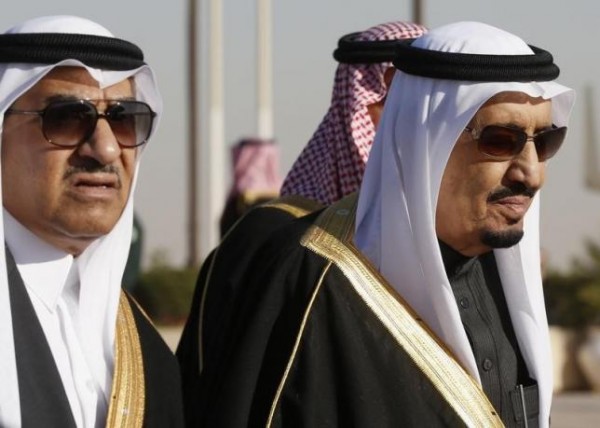
Saudi Arabia’s King Salman has designated his crown prince to attend a Gulf Arab summit with U.S. President Barack Obama, the state news agency, SPA, reported on Sunday.
Foreign Minister Adel al-Jubeir announced that Crown Prince Mohammed bin Nayef would head the delegation representing the world’s top oil exporter at the talks, which U.S. sources say will focus on military cooperation.
A preliminary deal between Iran and world powers on Tehran’s nuclear program and the crises in Syria and Yemen are also likely to be discussed.
The two-day summit, due to take place on Tuesday and Wednesday in Washington DC and in Camp David, Maryland, coincides with the start of a five-day humanitarian truce inYemen, proposed by Saudi Arabia and agreed to by the Houthi rebels it is fighting there.
Jubeir said Deputy Crown Prince and Defense Minister Mohammed bin Salman would also attend the summit for Saudi Arabia.
Obama issued the invitation to the Gulf Cooperation Council to attend the May 13-14 summit after Iran and six world powers reached a framework agreement last month that would give Tehran sanctions relief in exchange for reining in its nuclear program.
Gulf Arab neighbors, including key U.S. ally Saudi Arabia, worry that Iran will not be deterred from a nuclear bomb and will be flush with cash from unfrozen assets to fund proxies and expand its influence in countries such as Syria, Yemen and Lebanon.
A U.S. source said last week that Obama was expected to make a renewed U.S. push at the summit to help Gulf allies create a region-wide defense system to guard against Iranian missiles as he seeks to allay their anxieties over the nuclear deal with Tehran.
The offer could be accompanied by enhanced security commitments, new arms sales and more joint military exercises, U.S. officials say, as Obama tries to reassure Gulf Arab countries that Washington is not abandoning them.
Obama is all but certain to stop short of a full security treaty with Saudi Arabia or other Gulf states as that would require approval by the Republican-controlled Senate and risk stoking tensions with Washington’s main Middle East ally Israel.
A second U.S. official insisted the summit would be a “two-way street,” with Washington pushing Gulf leaders to overcome internal rivalries and find ways to collaborate better in their own defense.
United Arab Emirates will demand a U.S. commitment that the outcome of a nuclear deal between the world powers and Iran ensures that Tehran will respect its Arab neighbors, UAE Minister of State for Foreign Affairs Anwar Gargash said in remarks carried by state news agency WAM.
“The main dilemma in relations between Iran and the Arabs is the Iranian desire to expand,” Gargash said, according to WAM, which quoted excerpts of an interview with Abu Dhabi-based Sky News Arabia scheduled to be broadcast on Sunday.
Apart from Saudi Arabia and the UAE, the GCC also comprises Kuwait, Qatar, Bahrain and Oman.
REUTERS
Leave a Reply
You must be logged in to post a comment.